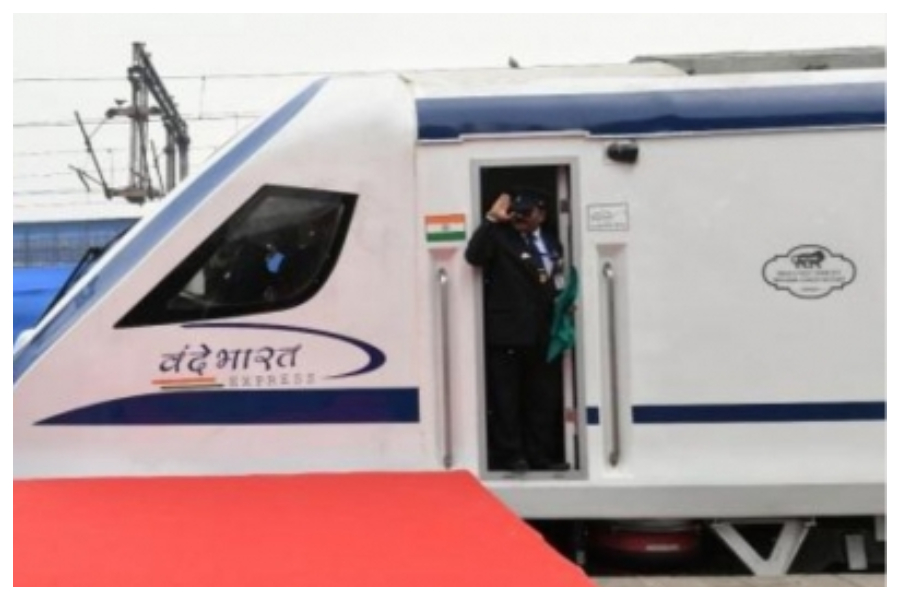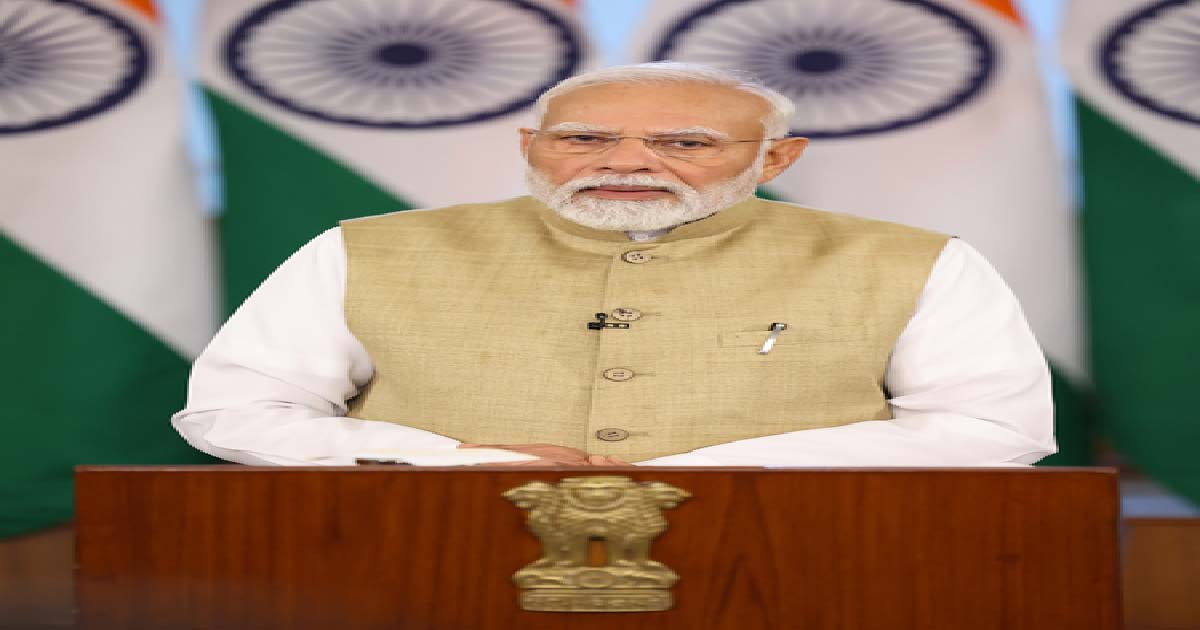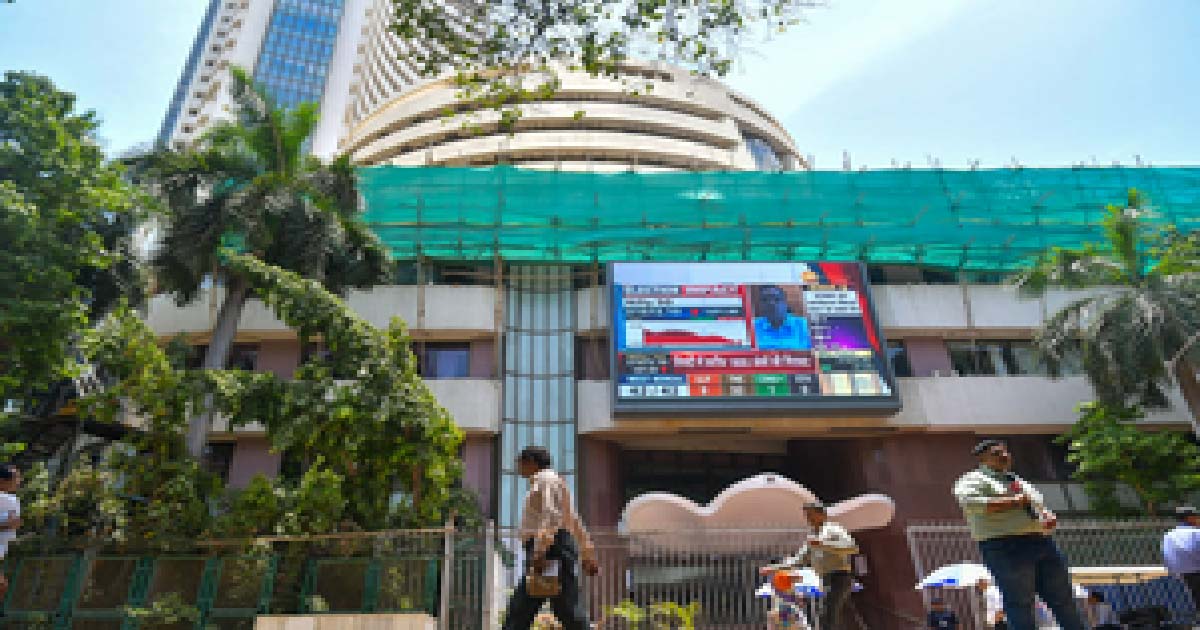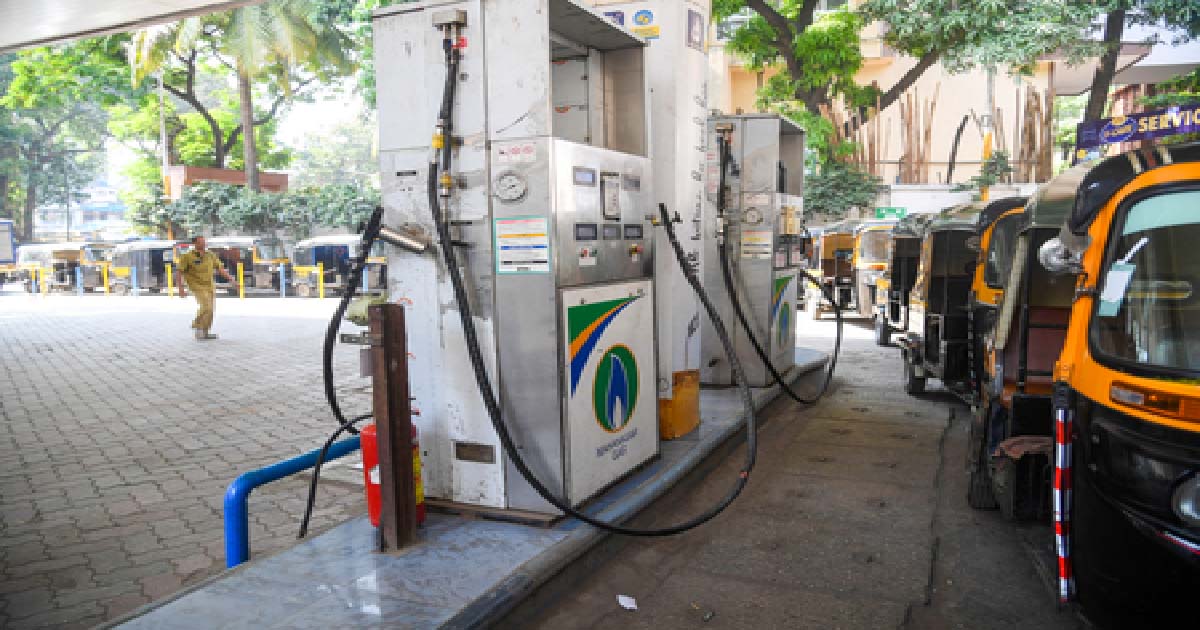Business
400 Vande Bharat trains: Rs 40,000 Cr business opportunity and jobs

Rolling out 400 Vande Bharat Express trains is about Rs 40,000 crore of business coupled with jobs and other spin-off benefits, said senior officials –present and past — of Indian Railways
Presenting the Union Budget for 2022-23, Indian Finance Minister Nirmala Sitharaman said 400 new energy efficient Vande Bharat trains will be introduced in three years.
The Vande Bharat Express is a semi-high speed train designed, developed and built by the Integral Coach Factory (ICF) at a frugal outlay of Rs 100 crore.
The Indian Railways officials preferring anonymity told IANS that 400 Vande Bharat trains over the next three years is not just headline catching announcement. It is about Rs 40,000 crore business opportunity that would also create 15,000 jobs and several spin -off benefits.
Presently there are only two Vande Bharat trains that are running — Delhi to Varanasi and Delhi to Katra.
“The trains without a pair are running six days a week without a breakdown till date since they were pressed into service a couple of years back. Perhaps Vande Bharat Express is the first train that is run without a pair,” a senior official at ICF told IANS with pride.
It is one classic example of ‘Make in India’ and far cheaper than similar trains that are rolled out by foreign companies.
The train has only about 15 per cent import content which will further go down if production volumes increase, officials told IANS earlier.
An ICF official said the third prototype is getting delayed due to production bottlenecks and logistical challenges due to the Covid-19 pandemic.
However, how the government is going to achieve its target of 400 Vande Bharat Express trains over the next three years is the Rs 40,000 crore question.
While it is really an ambitious target, it can be achieved in a staggered manner with the government giving better clarity on its plans, officials said.
Indian Railway Minister Ashwini Vaishnaw said the upgraded Vande Bharat train is expected to be ready for tests in April and commercial production is expected to start in August/September, 2022.
“I would think that a more realistic target of say 100-150 trains in three years would have been better. This target itself would need very concerted and committed action by railway executives, particularly at ICF,” Sudhanshu Mani, retired General Manager, ICF and the Creator of Vande Bharat Express told IANS.
He said, commercial production and necessary testing of the upgraded train is expected to start only in September 2022 and hence the target should be realistic.
“Rolling out the trains in large numbers may not be an issue. But where are they going to be deployed? The routes also have to be finalised,” Mani added.
Continuing further Mani said ICF should start working on Vande Bharat trainsets, including the sleeper version (code named Train 19) and 300 units of aluminium body trainsets (code named Train 20).
“There can be a foreign partner for rolling out aluminium body trains. In 5/6 year’s time 400 trains can be there,” he remarked.
When pointed out that the train could be rolled out by other coach manufacturing facilities in the country Mani said: “Initially only ICF should roll out as they understand the technology and other aspects. Spreading out the production to other units will result in quality issues.”
Concurring with him, a senior official not wanting to be quoted told IANS: “Only ICF should make it. It needs special skill sets and trained people are not available in other units.”
Officials also said spreading out the manufacturing not only would result in quality issues, but the ultimate death of the train that is successfully running without a hitch six days a week for the past couple of years.
While ICF would initially roll out the trainsets, the other units can take care of the maintenance works and acquire the production knowhow.
The other question is the availability of the vendors. Unless the government gives a clear roadmap, vendors may not ramp up their production capacity, officials said.
“The supply chain will take time to gear up. They can supply only at a steady rate. Out of the 400 trains, during the first year only 20 trains can be rolled out and 380 trains in the remaining two years is not possible,” the official added.
Further vendors and ICF officials are reluctant to touch the Vande Bharat train project after the witch hunt in the form of vigilance enquiry that was conducted and concluded recently without finding any discrepancy.
According to officials, there needs to be long term contracts — say 60 trains for the next 10 years — only then vendors can set up production facilities.
“Tenders and procurement process should be done in such a way that vendors can participate without worry,” they added.
Business
Four Labour Codes are most progressive reforms for workers since Independence: PM Modi

New Delhi, Nov 21: Prime Minister Narendra Modi on Friday said the government has given effect to the Four Labour Codes, which are one of the most comprehensive and progressive labour-oriented reforms since Independence.
“It greatly empowers our workers. It also significantly simplifies compliance and promotes Ease of Doing Business,” the Prime Minister remarked.
He said that these Codes will serve as a strong foundation for universal social security, minimum and timely payment of wages, safe workplaces and remunerative opportunities for our people, especially ‘Nari Shakti and Yuva Shakti’.
“It will build a future-ready ecosystem that protects the rights of workers and strengthens India’s economic growth. These reforms will boost job creation, drive productivity and accelerate our journey towards a Viksit Bharat,” he added.
The four labour codes include the Code on Wages, 2019, the Industrial Relations Code, 2020, the Code on Social Security, 2020 and the Occupational Safety, Health and Working Conditions Code, 2020, with effect from November 21, rationalising 29 existing labour laws.
With the implementation of the Labour Codes, it has now become mandatory for employers to issue appointment letters to all workers, which provides written proof to ensure transparency, job security, and fixed employment. Earlier, no mandatory appointment letters were required.
Under Code on Social Security, 2020, all workers, including gig and platform workers, will get social security coverage. All workers will get PF, ESIC, insurance, and other social security benefits. Earlier, there was only limited security coverage.
Under the Code on Wages, 2019, all workers will receive a statutory right minimum wage payment which wages and timely payment will ensure financial security. Earlier, minimum wages applied only to scheduled industries or employments; large sections of workers remained uncovered.
The Labour codes also ensure that employers must provide all workers above the age of 40 years with a free annual health check-up and promote a timely preventive healthcare culture. Earlier, there was no legal requirement for employers to provide free annual health check-ups to workers.
The codes also make it mandatory for employers to provide timely wages, to ensure financial stability, reducing work stress and boosting the overall morale of the workers. Earlier, there was no mandatory compliance for employers’ payment of wages.
The new law permits women to work at night and in all types of work across all establishments, subject to their consent and required safety measures. Women will also get equal opportunities to earn higher incomes in high-paying job roles. Earlier, women’s employment in night shifts and certain occupations was restricted.
The new codes also extend ESIC coverage and benefits pan-India – voluntary for establishments with fewer than 10 employees, and mandatory for establishments with even one employee engaged in hazardous processes.
Social protection coverage will be expanded to all workers. Earlier, ESIC coverage was limited to notified areas and specific industries; establishments with fewer than 10 employees were generally excluded, and hazardous-process units did not have uniform mandatory ESIC coverage across India.
The codes also ease the compliance burden for workers by providing for single registration, a PAN-India single license and a single return. Earlier, multiple registrations, licenses and returns across various labour laws were required.
Business
Sensex, Nifty open marginally down amid negative global cues

Mumbai, Nov 21: Indian benchmark indices opened in mild red zone on Friday, amid negative global cues and fading investor hopes of a US Fed rate cut in December.
As of 9.25 am, Sensex declined 80 points, or 0.09 per cent at 85,551 and Nifty dipped 15 points, or 0.05 per cent to 25,860.
The broadcap indices performed in line with the benchmarks, with the Nifty Midcap 100 down 0.30 per cent and the Nifty Smallcap 100 dipped 0.34 per cent.
TCS, Asian Paints and NTPC were among the major gainers in the Nifty Pack, while losers included Hindalco, Shriram Finance, Tata Steel and ICICI Bank.
All the sectoral indices on NSE were trading in red except Nifty Auto (up 0.30 per cent). Nifty Metal down 0.79 per cent was the biggest loser.
Analysts said that India will gain if the AI trade slows down and capital begins to shift into non-AI stocks in emerging markets.
All of the major Asia-Pacific markets fell in early trading sessions after US AI and tech stocks shed value and investors lost hopes of a December rate cut by the Federal Reserve.
The volatility of the market has increased evident by Nasdaq, the barometer of AI trading, ending the day down 2.15 per cent, crashing 4.4 per cent from the intraday peak.
“This type of market movement indicates that there will be more volatility in the future. AI stock prices may see fresh buying at lower valuations. We will need to wait and observe the course of this unstable period,” an analyst said.
The US markets ended in the red zone overnight, as Nasdaq slipped 2.16 per cent, the S&P 500 dropped 1.56 per cent, and the Dow declined 0.84 per cent.
In Asian markets, China’s Shanghai index dipped 1.71 per cent, and Shenzhen dipped 2.52 per cent, Japan’s Nikkei dipped 2.31 per cent, while Hong Kong’s Hang Seng Index declined 2.17 per cent. South Korea’s Kospi dropped 3.94 per cent.
On Thursday, foreign institutional investors (FIIs) sold equities worth Rs 284 crore, while domestic institutional investors (DIIs) were net buyers of equities worth Rs 824 crore.
Business
Indian city gas distribution firms’ operating profit to rise 8-12 pc this fiscal

New Delhi, Nov 20: City gas distribution (CGD) companies in India are projected to clock an operating profit of Rs 7.2–7.5 per standard cubic metre (scm) this fiscal — up 8-12 per cent compared with the second half of last fiscal when margins dropped because of a sudden and steep decline in gas allocation under the administered price mechanism (APM) for the compressed natural gas (CNG) segment, a report said on Thursday.
Consequently, distributors had to take recourse to the spot gas market for supply, which exerted upward pressure on cost. The companies have, thereafter, transitioned to contracted supplies, which is expected to burnish margins.
“Healthy earnings will keep leverage in check despite the proposed capital expenditure (capex) by companies. Our assessment of seven CGD companies, with 70 per cent share of total sales volume last fiscal, indicates as much,” Crisil Ratings said in its report.
CGD companies get gas on priority at lower prices under the APM from legacy gas fields to serve the domestic CNG and piped natural gas-domestic (PNG-D) segments.
Beyond APM, they procure high-pressure, high-temperature (HPHT) gas and imported regasified liquefied natural gas (R-LNG) under contracted and spot purchase mechanisms.
According to the report, in the second half of the last fiscal, APM gas allocated to the CNG segment was reduced to less than 40 per cent of the total CNG requirement, compared with 70 per cent in the first half of the last fiscal.
This led to a substantial increase in gas procurement costs as companies relied on spot purchases, which were 80-100 per cent more expensive than those under APM prices, to protect against supply disruptions.
As a result, spot purchases by volume rose to more than 15 per cent of total supplies from 5 per cent in the first half of the last fiscal.
“Against the 30 per cent reduction in APM allocation for the CNG segment, CGD companies got 15-20 per cent long-term allocations from domestic new well gas, mainly towards the end of last fiscal or early this fiscal. For the balance, they have signed additional medium- and long-term contracts, mainly for HPHT gas and R-LNG,” said Ankit Hakhu, Director, Crisil Ratings.
This will not only improve gas security but also reduce exposure to the spot market, where prices are 25-30 per cent higher on average, he added.
The report noted that realisations are steady this fiscal, following some increase in the second half of last fiscal when companies implemented price hikes to pass on increased costs to consumers, albeit partially and gradually.
However, some of the benefits of reduced gas procurement costs in the current fiscal year will be offset by an increase in other operating costs. These costs will rise as players continue to incur capex to expand gas infrastructure in existing and new geographical areas (GAs) to support volume growth.
-

 Crime3 years ago
Crime3 years agoClass 10 student jumps to death in Jaipur
-

 Maharashtra1 year ago
Maharashtra1 year agoMumbai Local Train Update: Central Railway’s New Timetable Comes Into Effect; Check Full List Of Revised Timings & Stations
-

 Maharashtra1 year ago
Maharashtra1 year agoMumbai To Go Toll-Free Tonight! Maharashtra Govt Announces Complete Toll Waiver For Light Motor Vehicles At All 5 Entry Points Of City
-

 Maharashtra1 year ago
Maharashtra1 year agoFalse photo of Imtiaz Jaleel’s rally, exposing the fooling conspiracy
-

 National News1 year ago
National News1 year agoMinistry of Railways rolls out Special Drive 4.0 with focus on digitisation, cleanliness, inclusiveness and grievance redressal
-

 Maharashtra1 year ago
Maharashtra1 year agoMaharashtra Elections 2024: Mumbai Metro & BEST Services Extended Till Midnight On Voting Day
-

 National News1 year ago
National News1 year agoJ&K: 4 Jawans Killed, 28 Injured After Bus Carrying BSF Personnel For Poll Duty Falls Into Gorge In Budgam; Terrifying Visuals Surface
-

 Crime1 year ago
Crime1 year agoBaba Siddique Murder: Mumbai Police Unable To Get Lawrence Bishnoi Custody Due To Home Ministry Order, Says Report












